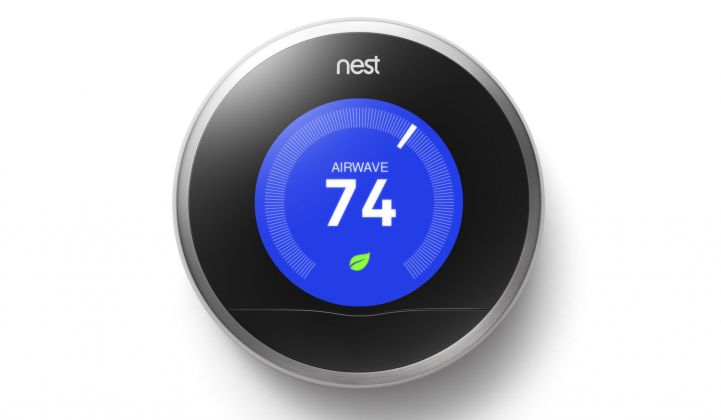Consumers who are wading into smart home technologies may be wondering whether to go with an offering from a security company such as ADT or a home services provider like Comcast.
In either case, they could be buying a product powered by the same underlying platform: Icontrol Networks’ OpenHome ecosystem. To further expand its dominance, Icontrol just added one of the most popular smart thermostats on the market to its list of devices: the Nest learning thermostat.
One of Icontrol’s partners, Peq (pronounced "peak"), whose product is sold at Best Buy, is already offering the Nest thermostat on its system. Other Icontrol-powered providers will likely follow suit.
“The Icontrol and Nest integration shows how two leading companies are working together to break down barriers to smart home adoption, making it easier for customers to come on board,” Robert Hagerty, CEO of Icontrol Networks, said in a statement.
The Icontrol certification process involves being vetted by a third party, and then going through the certification process for the different potential partners. “If you have a ZigBee-compatible device, it can work,” said Greg Roberts, VP of marketing for Icontrol. “But we’re going to make sure that it works.” Nest joins more than 100 other devices and applications that have joined the OpenHome ecosystem and another approximately 100 devices that are in the pipeline.
“It’s expanding at an exponential rate,” said Roberts.
Icontrol isn’t just about driving interoperability, but also about bringing on various devices to help drive down costs for the entire industry, said Roberts. Icontrol backs up some of the biggest names in the business, including Cox, Time Warner Cable, Rogers, ADT and Swisscom.
Nest joins a few other connected thermostats offered by Icontrol, including devices from Radio Thermostat of America and CentraLite. Of course, Nest, now owned by Google, wants to be a smart home platform in its own right. The home energy management market alone will be worth more than $4 billion by 2017, according to GTM Research.
Earlier this year, Nest launched its own developer program to integrate products on its platform, including Chamberlain garage doors, the Jawbone fitness band and LIFX Wi-Fi light bulbs.
Nest is also savvy enough to know that for most people, security is currently the entry point into smart home products. Although self-monitoring solutions are growing, many consumers are still choosing to buy smart home devices through service providers and then layering other devices -- such as smart thermostats -- on top of that.
“We’re seeing an increase in [the number of devices] people are getting,” Roberts. He said the last two to three years of advertising by big players is starting to pay off, and consumers are more educated when it comes to what’s available on smart home platforms.
Even so, there’s a long way to go. A recent survey found most people don’t even know what a smart home is. But as they do learn, “what we’re starting to see is consumers are embracing those smart home technologies and are much more open to self-monitored solutions,” said Roberts.
For now, it’s a murky market. There are new entries such as Apple HomeKit, which so far looks to be more of a way for people to simply control their various devices via their Apple device, rather than a seamless smart home platform.
Nest is clearly interested in being a smart home platform provider, but it is unclear exactly how that will develop as it also offers its devices to potential platform competitors. Others, like Lowe’s, are also playing both sides of the aisle. Lowe's has a connected home platform, Iris, but also sells devices that integrate onto others’ systems.
Platform providers and device manufacturers are trying to figure out not only the best go-to-market strategy, but also which combination of devices will entice customers. Some platforms offer rooftop solar, and we also expect to see other energy plays added on in the future.
It’s no longer far-fetched to guess that someday soon your smart home bundle will not only come with free HBO, but also a preferred electricity plan -- maybe even one that leverages the Nest thermostat that came with your connected home package.



